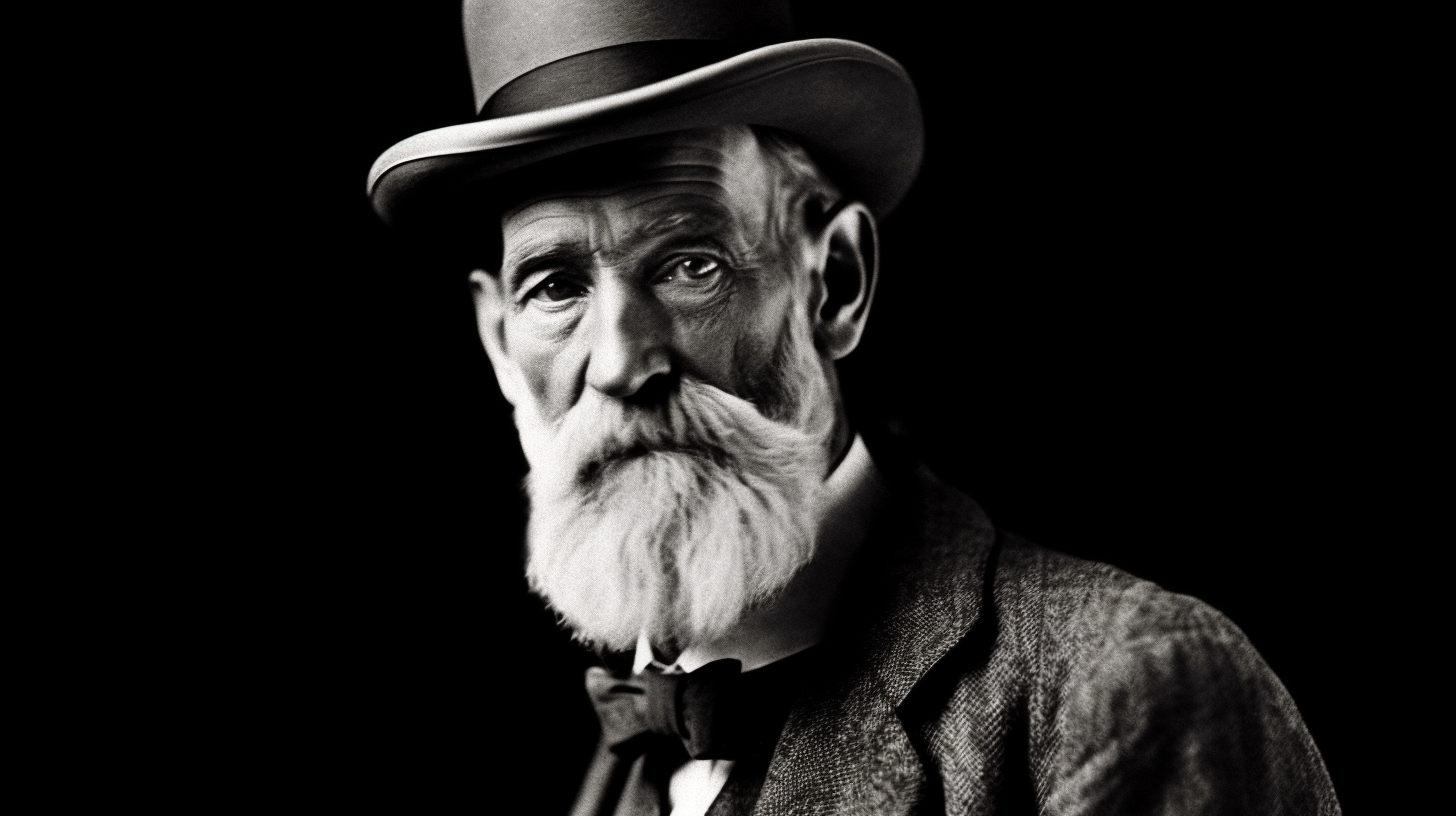The Moral Implications of Manipulation in George Bernard Shaw's Pygmalion
In the vast landscape of George Bernard Shaw's Pygmalion, where the subtle interplay of language and social dynamics unfolds, we are confronted with the moral implications of manipulation. Shaw, the master wordsmith, presents us with a narrative that delves deep into the human psyche, probing the complexities of power and transformation.
Within this narrative, the central figure of Pygmalion, a sculptor of souls, emerges as a captivating character. His manipulative prowess knows no bounds as he undertakes the audacious task of remaking Eliza, a lowly guttersnipe, into a refined and beautiful lady. With his linguistic mastery and unyielding determination, Pygmalion sets out to mould her speech, her demeanour, and even her very essence.

The moral difficulty lies in the delicate balance between Pygmalion's guiding hand and Eliza's innate agency. Is she a mere vessel, a pawn in his grand experiment, or does she emerge as an individual, reborn with newfound strength and autonomy? Shaw leaves us pondering the true nature of this transformation, casting a critical eye on the power dynamics at play.
In exploring the moral implications of manipulation, Shaw dissects the intricate fabric of society, raising profound questions about the nature of control and the individual's right to self-determination. For example, does Pygmalion's act elevate Eliza, granting her access to a higher social sphere, or does it subjugate her voice and suppress her true identity? These questions resonate with us, urging us to reflect on our roles as manipulators or the manipulated in the intricate dance of human interactions.

The triumphs and tragedies within Pygmalion serve as cautionary tales, reminding us of the delicate balance between ethical responsibility and the allure of power. Shaw forces us to confront the potential consequences of our actions, the repercussions that ripple through society when manipulation becomes a tool of self-gratification or dominance.
In conclusion, Pygmalion offers a masterful exploration of the moral implications of manipulation. Shaw's keen insight challenges us to question the boundaries of our agency and the ethical ramifications of wielding power over others. Moreover, it serves as a reminder that in our pursuit of self-realization, we must remain ever vigilant of our actions' impact on the lives of those we encounter.

Our take: Shaw's Pygmalion not only exposes the ethical complexities of manipulation but also urges us to engage with the greater good (καλός). Producing critical introspection encourages us to consider the moral implications of our actions and aspire to a more compassionate and equitable society. In literature, such contemplation catalyzes growth and is a testament to the power of art to provoke meaningful discourse.

Plato Re-Imagined
This course offers 32 comprehensive lectures exploring most of Plato's dialogues. These lectures guide students toward a consilient understanding of the divine—a concept that harmonizes knowledge across disciplines and resonates with secular and religious leaders. As a bonus, Lecture #33 focuses on consilience, demonstrating how different fields of knowledge can converge to form a unified understanding.






